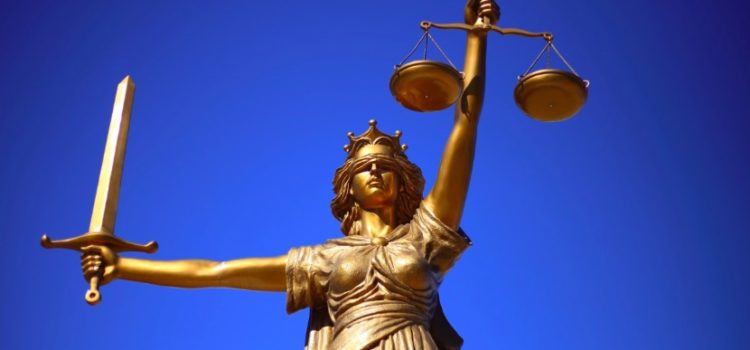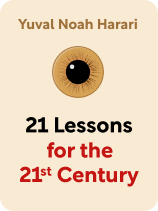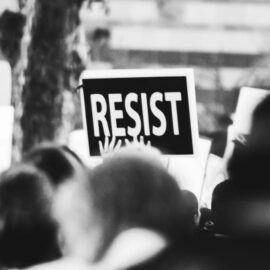

This article is an excerpt from the Shortform book guide to "21 Lessons for the 21st Century" by Yuval Noah Harari. Shortform has the world's best summaries and analyses of books you should be reading.
Like this article? Sign up for a free trial here .
Is global justice a feasible political goal? How can justice be realized on a global scale in such a complex and intricately connected world?
Most of the injustices in the world are embedded in systems and structures which makes it almost impossible to know all of the effects of individuals’ actions. Further, humans’ brains haven’t evolved to grasp justice on a global scale because our sense of justice developed during the times of ancient hunter-gatherer societies who lived in small communities.
Keep reading to learn about the dilemma of global justice.
Is Global Justice a Feasible Political Goal?
Like morality and ethics, humans’ sense of justice developed during the times of ancient hunter-gatherer societies. Human codes of right and wrong were developed to suit small communities of a few hundred people in a small geographic area—and they don’t translate seamlessly to our modern world of millions of people across the globe.
Justice requires an understanding of cause and effect, which was much simpler in ancient times. In the Stone Age, if you stole your neighbor’s food, the effect of the theft was immediate and apparent: The neighbor and her family would go to sleep hungry that night. By contrast, most of the injustices in the modern world are embedded in systems and structures—such as systems of politics and trade—which makes it almost impossible to know all of the consequences of your seemingly small actions. For example, you may think you’re innocently shopping for groceries and clothes, while others blame you for participating in an inhumane system of food production and perpetuating child labor in sweatshops halfway across the world. It’s almost impossible to know whether or not you’re doing wrong because the global system in which we live does wrong on your behalf and without your awareness. With this in mind, is global justice a feasible political goal?
Some people argue that individuals’ intentions should be the measure of their morality: If they meant no harm and didn’t know they were doing anything wrong, then you can’t blame them for it. However, many of the greatest atrocities in human history were facilitated by people who were ignorant of their supporting roles. For example, the post office managers in 1930s Germany may have had no intention of aiding genocide, yet their work was vital to the distribution of Nazi propaganda and recruitment.
People Struggle to Understand Big Issues
Even if people make an effort to understand the effects of their actions, the tangled interconnectedness of the modern world is far too complex to realize justice on a global scale. Hunter-gatherers developed the ability to comprehend conflicts between individuals, within small communities, and among tribes—but humans’ brains haven’t evolved to grasp justice on a global scale. At the same time, humans’ interconnectedness makes mutual understanding more important than ever before.
When a problem gets too big and complicated to grasp, people often use one of four shortcuts to attempt to understand it:
- People shrink and simplify big, complex problems. For example, in a complicated political matter with a lot of nuanced history, such as the Syrian civil war, people are tempted to simplify the matter by calling one side good and the other bad.
- People zoom in on the story of one individual who’s impacted by the problem, rather than trying to grasp the broad scope of the issue. For example, people may focus on the story of one impoverished, hungry child instead of the massive problem of poverty and food insecurity.
- People concoct or latch onto conspiracy theories because they make sense of something that’s otherwise confusing to understand—but these stories generally have little or no connection to reality. For example, many people believe that a small group of superrich elites is controlling media, politics, and social issues throughout the world for their own benefit. However, the reality is much more complex.
- People essentially give up on trying to understand things themselves and choose a dogma to follow. It’s easier to follow whatever that religion, theory, institution, or leader dictates than to decide for themselves what’s right and wrong. For example, people who throw their hands up at trying to understand and reverse climate change may turn to religion and declare that global warming is God’s will.
Since humans often can’t understand and address complicated issues as individuals, people could turn to their communities to work together to make sense of the world—but this approach leads to its own problems. A community can tackle an issue within the community, but when the problems stretch beyond the community, attempts to understand are likely to lead to biased groupthink. In order to address the global problems we face, we need a global community to work together to understand them.

———End of Preview———
Like what you just read? Read the rest of the world's best book summary and analysis of Yuval Noah Harari's "21 Lessons for the 21st Century" at Shortform .
Here's what you'll find in our full 21 Lessons for the 21st Century summary :
- What the unique challenges of the 21st century are and will be
- Why religion can't solve these 21st-century challenges
- How algorithms like Netflix recommendations are teaching you not to trust yourself






